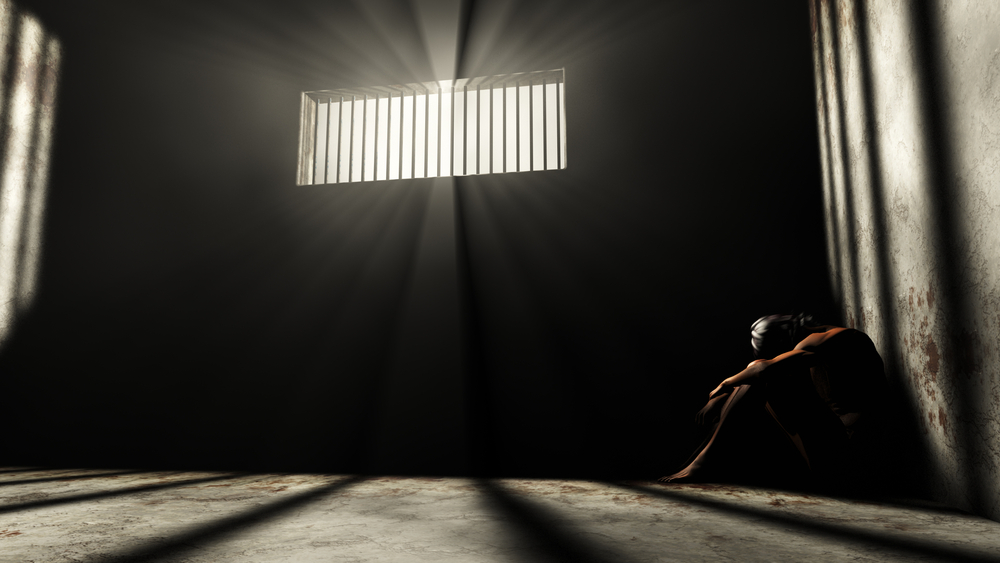Death row inmate held in solitary confinement for 26 years can sue, federal appeals court rules

A death row inmate with a known history of serious mental illness can sue Pennsylvania’s corrections chief for holding him in solitary confinement for 26 years, a federal appeals court ruled last week. (Image from Shutterstock)
A death row inmate with a known history of serious mental illness can sue Pennsylvania’s corrections chief for holding him in solitary confinement for 26 years, a federal appeals court ruled Friday.
The 3rd U.S. Circuit Court of Appeals at Philadelphia ruled 2-1 that inmate Roy L. Williams can sue for alleged violations of the Americans With Disabilities Act and the Eighth Amendment’s ban on cruel and unusual punishment.
The Associated Press covered the Sept. 20 decision.
The prison chief did not have qualified immunity because “individuals with a known history of serious mental illness have a clearly established right not to be subjected to prolonged, indefinite solitary confinement—without penological justification—by an official who was aware of that history,” wrote Senior Judge Theodore McKee, an appointee of former President Bill Clinton, citing a prior case.
Williams was in solitary confinement between 1993 and 2019, when the state corrections department changed its policy because of a legal settlement. But the department was on notice that its policy was cruel and unusual because of a 2014 report by the U.S. Department of Justice, McKee said.
The report said harsh solitary confinement for extended periods of time for prisoners with serious mental illness and intellectual disability “constitutes precisely the type of indifference to excessive risk of harm the Eighth Amendment prohibits.”
Judge Peter J. Phipps, an appointee of former President Donald Trump, dissented.
The majority “ignores this court’s precedent and misapplies foundational principles,” Phipps wrote.
Williams, who was convicted for killing a construction worker, had mental health issues since childhood, according to the opinion. He was 14 years old when he was involuntarily committed for suicidal threats and violent behavior.
Williams was represented by the Pennsylvania Institutional Law Project, which has filed similar lawsuits over solitary confinement.
Williams’ case “is the first to go up on appeal,” said Matthew Feldman, a supervising lawyer with the group, in an interview with the Associated Press. “So I think this opinion definitely will help all those other men whose cases are currently pending in trial courts right now.”



